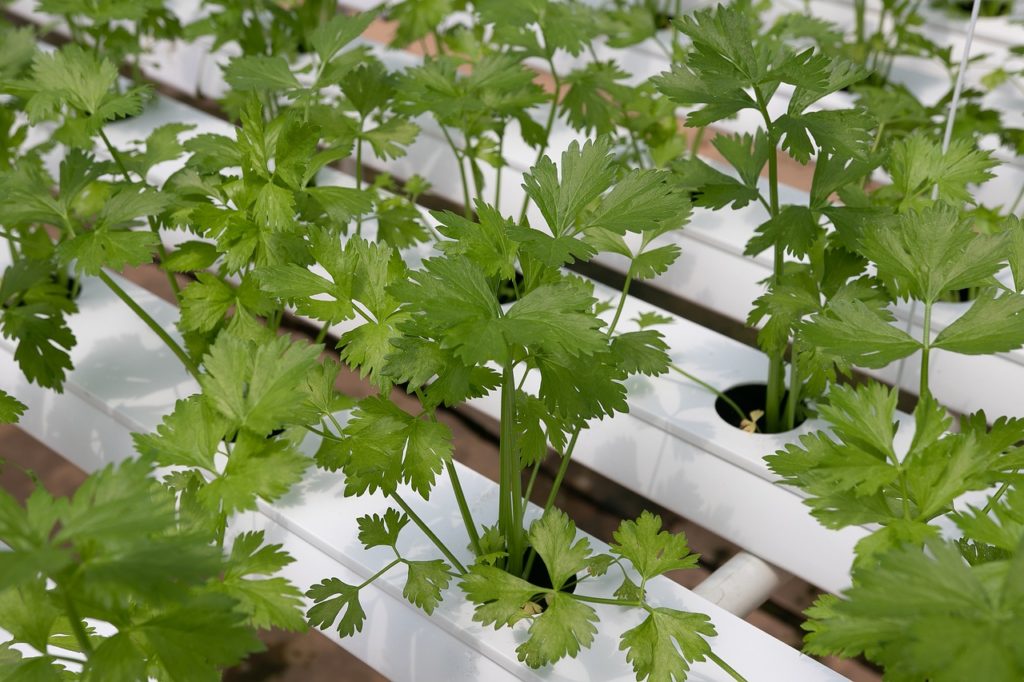While weather conditions make agriculture difficult in the Middle East, scientists and farmers continue to innovate and find new ways to grow and distribute fresh food in this arid environment. With a focus on hydroponic farming, agriculture is being reshaped by innovative developments, using cutting-edge technology that allows farmers to grow without pesticides while increasing yields and decreasing costs. In a region where farmland and natural resources are limited, these new farms are leading the way in creating a new agricultural system that provides consumers with a steady supply of locally grown fresh produce.
Here are some of the newest leaders in agriculture in the Middle East.
Smart Acres
Vertical hydroponic farming is becoming increasingly popular in the Middle East, as the method provides a way for plants to be grown locally, indoors, and year-round. Smart Acres, a company based in Abu Dhabi, is launching a new endeavor to bring fresh lettuce and other greens to the region. The projected is expected to open in mid-2020, and organizers say it will help the Middle East remain food stable in the face of weather disasters, pandemics, and other potential catastrophes.

Smart Acres’ vertical farming technology was developed by CEO Abdulla Al Kaabi, along with director Sean Lee and lead project manager Aphisith Phongsavanh. They worked with n.thing, a vertical farming company based in South Korea, to design vertical models outfitted with IoT-based technology that allows farmers to closely monitor their crops. The result, Smart Acres’ leaders say, is high-quality, high-yield crops that can be locally sourced. This farming method also consumes fewer resources, as the monitoring system closely regulates plants’ energy and water consumption.
This approach to vertical farming, which won a CES 2020 Innovation Award, addresses many of the issues that often plague farmers and make growing difficult. Smart Acres’ vertical farms eliminate many of the problems that farmers face in nature, such as insect infestation, water waste, and a decrease in nutrients in the soil.
Smart Acres is committed to avoiding the use of pesticides and other toxic solutions on its plants, and it also is implementing requirements such as mandatory air showers for people entering and exiting the work area. As a result, Smart Acres expects to soon provide Abu Dhabi, and later more communities in the UAE, with an abundant supply of fresh, healthy food.
Smart Acres will initially focus on growing mature species of lettuce, including Green Glace and Shiso, with plans to add baby spinach, baby arugula, and mature spinach, and possibly cultivate strawberries and potato seeds, sometime in the future.
Armela Farms
Founded in 2016, Armela Farms has become the biggest producer of fresh lettuce in the UAE, harvesting 1.6 million lettuce heads every year. Through hydroponic farming, Armela Farms lowers costs, water use, and land use, while consumers benefit from lower prices and nutritious produce.
“Most people maybe don’t realize is that locally produced harvest, and, in particular, commercial hydroponics farming, provide not only better quality products, but also a cheaper price tag to benefit the customer, be it retailers or consumers,” said Rachana Shah, director and co-founder of Armela Farms, in a press statement.
Through research and a focus on continual improvement, Armela Farms has increased its production 250 percent since its first harvest. Now, it operates on a 10,000-square-meter farm in Dubai, where it produces about 5,500 heads of lettuce each day. Products include a variety of lettuces along with kale and baby spinach.
Recently, Armela Farms announced that it would open a new, three-hectare facility in early 2021 that is projected to produce 20,000 heads of lettuce a day with a team of only 10 people. The project will use artificial intelligence to maximize production.
VeggiTech
This agro-tech company, which operates in the UAE, focuses on sustainable agriculture by using LED-assisted hydroponics for indoor vertical farms and operates more than 60 acres of protected hydroponic farms. A team of more than 150 engineers, farmers, and agronomists oversee VeggiTech’s operations.
VeggiTech primarily works to transform traditional farms into more sustainable, environmentally friendly hydroponic farms using cost-effective technology. In 2019 VeggiTech converted more than 35 acres of farms and built 45,000 square feet of new indoor hydroponic farming space in Sharjah. Its additional initiatives included donating care packages to healthcare workers in Dubai and families in need in Sharjah and producing more than 10,000 kilograms of vegetables for locals.
Along with farming, VeggiTech provides educational programs in conjunction with the Ministry of Climate Change and Environment in the UAE. The company’s Learning Hub platform offers classes on hydroponics and other innovative farming technologies, and so far, more than 50 participants have graduated from the program. The overall goal is to help build a sustainable agricultural system in the UAE.

